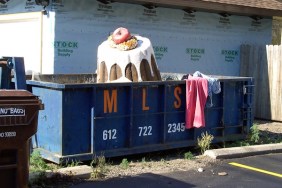Wilson Eco Core Golf Balls
(images via: Ignite Marketplace, Bank of America Store and Green Jacket Golf Balls)
Want better mileage from your golf balls? The cores of Wilson Eco Core golf balls are made with 100% recycled rubber tires (hence the “Eco Core” name), and though the manufacturer won’t promise better rolling resistance you’re unlikely to ever have a flat.
(images via: Rakuten/TSTAR and WebMarchand)
Wilson extends the eco-friendly theme to the balls’ packaging as well: the boxes and wrappings are made from recycled paper. With Eco Core golf balls, Wilson reaches back to their founding just over a century ago when, as the Ashland Manufacturing Company, various animal by-products sourced from slaughterhouses were used to make tennis racket strings, violin strings and surgical sutures. An early and successful example of recycling if there ever was!
Eco Golf Balls
(images via: Eco Golf Balls)
The rather generically named Eco Golf Ball is made from wood and ONLY wood, which makes it wholly natural and 100% biodegradable. They’re available in 1.65 inch diameter USGA regulation size and a slightly smaller 1.5 inch diameter version.
(images via: Eco Golf, Shaping Youth and Trendhunter)
Then there’s the so-called “Eco Golf Ball” above. Info on this environmentally-friendly golf ball is sketchy at best, but according to the manufacturer’s website “The Eco Golf Ball will float for 24-36 hours, then it will absorb enough water to sink and begin to degrade in the water.” One imagines Tiger Woods, after being hit with a golf club, would perform similarly.
(image via: Eco Golf Balls)
The Eco Golf Ball website displays photos of their ball in use; some of these images purport to show amateur golfers driving balls in Antarctica! Wood or not, that can’t be good for an environment that’s never known trees, much less the penguins and marine mammals who inhabit it. For this reason alone we’ll have to give the Eco Golf Ball our “seal” of disapproval.
(image via: Relaxed Fitzine)
It’s estimated that approximately 300 million golf balls are lost, discarded or purposely driven on one-way trips every year: that’s a LOT of toxic pollutants injected into the environment! Though companies like Dixon Golf are taking a proactive stance on the issue by rolling out innovative golf ball recycling programs, the onus is on each golfer to “go for the green” with every stroke. After all, it doesn’t pay to tee off Mother Nature!





